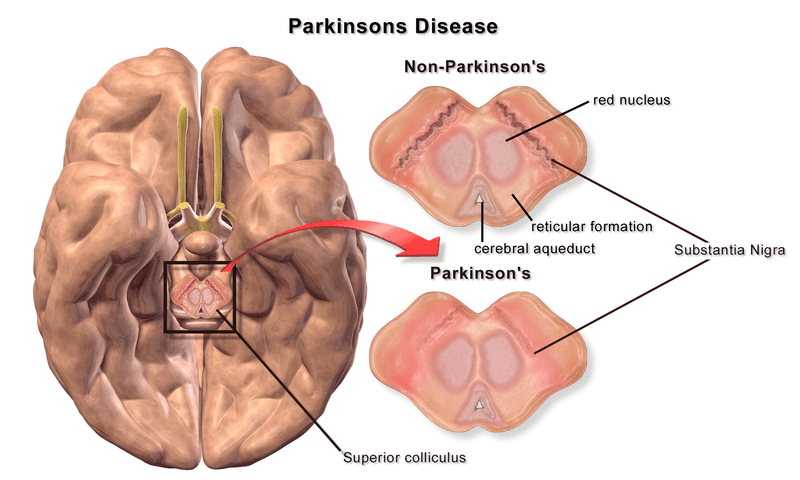
Scientists at King’s College London identify early signs of Parkinson’s disease
pharmafile | June 20, 2019 | News story | Research and Development | King's College London, Kings College London, Parkinson's disease, pharma, serotonin
Scientists at King’s College London say they have identified the earliest signs of Parkinson’s disease in the brain – 15 to 20 years before symptoms appear.
The scientists identified abnormalities in the serotonergic neurotransmitter systems of a small number of patients at high risk of developing the disease.
Traditionally the disease was thought to be linked to the neurotransmitter dopamine which is also lacking in the brains of those living with Parkinson’s disease.
However the researchers from KCL suggest that changes to the serotonin system come first. These changes could act as an early warning sign.
In making their discovery, the researchers looked at the brains of 14 people from remote villages in Greece and Italy, who have rare mutations to the SNCA gene. The mutation means it is almost certain that they will develop the disease.
By comparing the brains of these patients with those living with Parkinson’s and healthy controls, the researchers were able to pinpoint the changes to the serotonergic system when patients are in their 20s and 30s – years before symptoms appear. Their findings were published in The Lancet.
“Our findings provide evidence that molecular imaging of serotonin transporters could be used to visualise premotor pathology of Parkinson’s disease in vivo. Future work might establish whether serotonin transporter imaging is suitable as an adjunctive tool for screening and monitoring progression for individuals at risk or patients with Parkinson’s disease to complement dopaminergic imaging, or as a marker of Parkinson’s burden in clinical trials,” the study says.
Lead study author Prof Marios Politis, from the Institute of Psychiatry, Psychology and Neuroscience at King’s, commented: “Our results suggest that early detection of changes in the serotonin system could open doors to the development of new therapies to slow, and ultimately prevent, progression of Parkinson’s disease.”
Dr Beckie Port, research manager at charity Parkinson’s UK, added: “Further research is needed to fully understand the importance of this discovery – but if it is able to unlock a tool to measure and monitor how Parkinson’s develops, it could change countless lives.”
Louis Goss
Related Content

Amneal and Zambon Biotech enter agreement for Parkinson’s treatment
Amneal Pharmaceuticals has announced that it has entered into an exclusive licensing agreement with Zambon …

FDA approves IMIDEX’s AI-powered device VisiRad XR
The technological pharmaceutical company IMIDEX has been granted clearance from the US Food and Drug …

Artiva Biotherapeutics announces FDA clearance of IND for AlloNK and Rituximab combo
On 16 August 2023, the US Food and Drug Administration (FDA) officially cleared Artiva Biotherapeutics’ …








